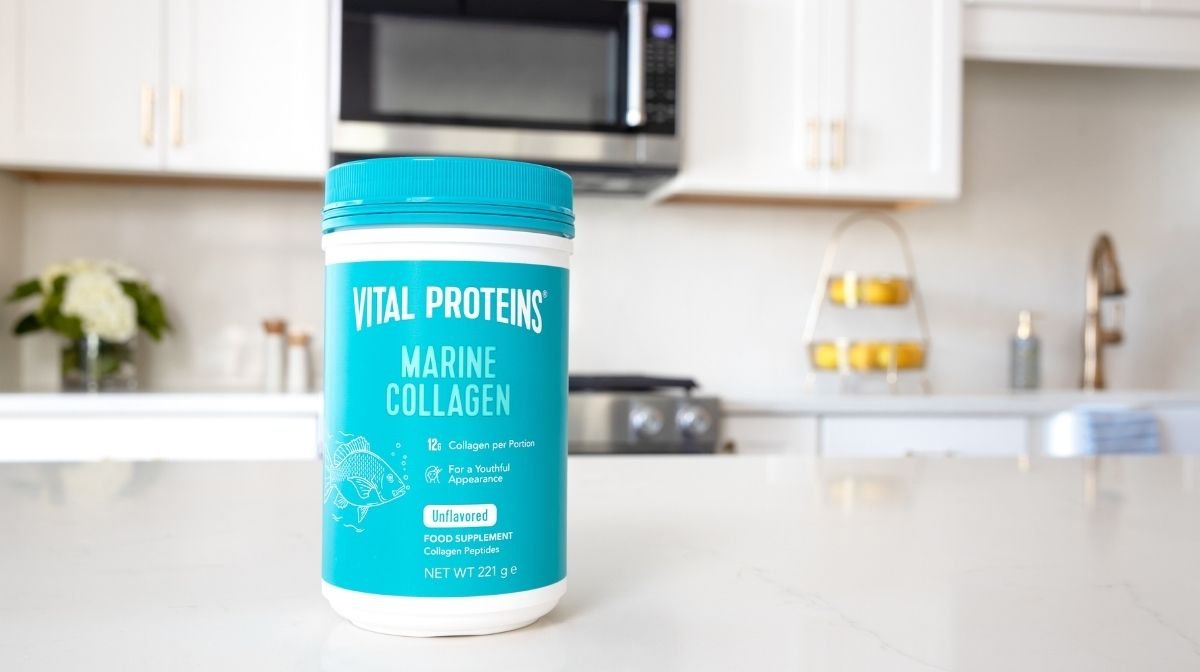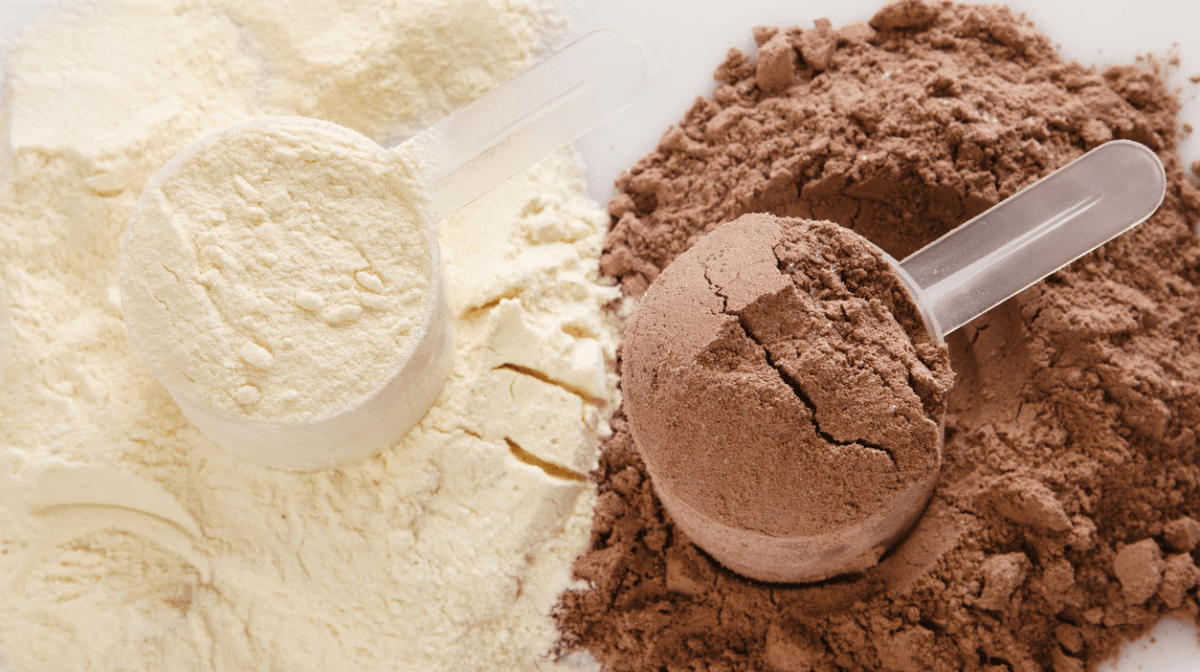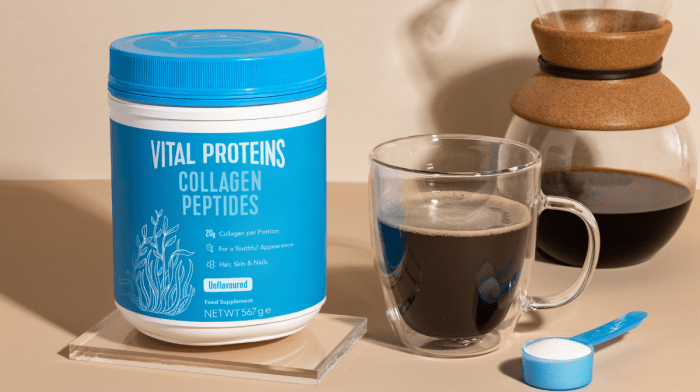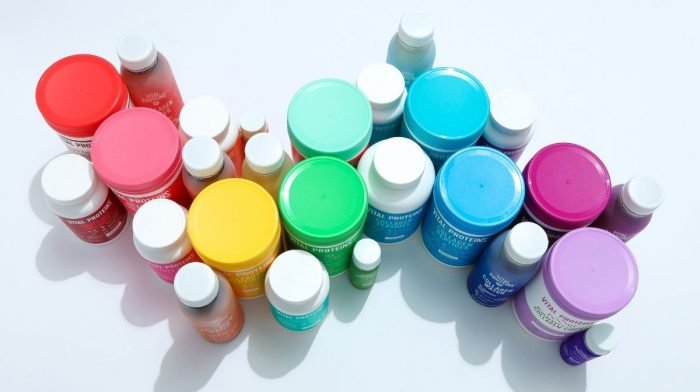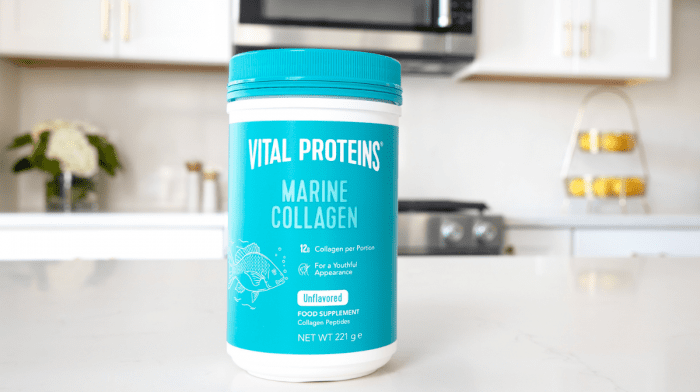Collagen is the body’s most abundant protein, made up of the amino acids glycine, proline, hydroxyproline and arginine, which support many bodily functions.
While we’re able to create our own collagen, our body’s natural production begins to decline around the age of 25. This is where it can be super effective to supplement your collagen intake and enjoy the improved health benefits.
There are a few different types of collagen supplements, but you might be wondering ‘what is marine collagen?’ or ‘why type of collagen should I go for?’, so we’ve got the answers for you.
What is Marine Collagen?
Marine collagen is a type of collagen protein derived from the skin, bones and scales of fish.
This type of collagen is known for its high bioavailability, meaning it is easily absorbed by the body, it’s favoured by industries spanning across beauty and nutrition, due to its abilities to help skin elasticity, hydration and overall skin health.
How is Marine Collagen Made?
Specifically referring to Vital Proteins Marine Collagen, we source this pescatarian-friendly offering from the skin, scales and bones of non-GMO white fish. In order to reduce waste and improve sustainability, we take these from the natural by-products of the seafood industry, which would otherwise be discarded.
Once the scales, bones or skins have been soaked, cleaned and softened, they’re ready for collagen extraction. Purified water is heated to extract the collagen, then water and proteolytic enzymes break it down into smaller protein chains called ‘collagen peptides’.
Using a burst of pressurised hot air, these collagen peptides are spray-dried into a fine, odourless powder. Each batch is then lab-tested to ensure quality and safety before being placed in a BPA/BPS-free canister.
What Type of Collagen is Marine Collagen?
Collagen can be categorised into five different types, all of which are important for maintaining the structural integrity of different tissues in the body.
While Bovine collagen tends to be rich in types I and III, marine collagen largely contains type I, with smaller levels of types II and III.
Keep reading for a breakdown of what these types are:
Type I
Type I collagen is the most prevalent kind in the body and is the key component in preserving the strength and health of your skin, hair or nails. Also present in your tendons, organs and bones, type I is super important to strengthen these areas and support their function.
Type II:
This type is primarily found in cartilage, which is the flexible connective tissue that cushions the joints. It is believed to help to reduce joint inflammation and works to maintain the structure and function of cartilage to prevent or reduce wear and tear over time.
Type III
The third most common form of collagen, type III, is abundant in skin, muscles and blood vessels, helping to encourage wound healing and promote skin elasticity.
Type IV Collagen:
Type IV is the main component of the basement membrane. Forming a scaffold-like structure that supports and separates different tissue layers, to help to keep the skin plump and healthy.
Type V Collagen:
Type V collagen is typically found in smaller quantities and often occurs in association with type I collagen. It plays a role in regulating the assembly and organization of collagen fibres and contributes to the structural stability of various tissues.
Marine Collagen Benefits
Is marine collagen good for you? Well, we’re diving in on the several benefits that Marine has to offer, including:
1. Highly Bioavailable
Marine collagen is rich in type I collagen, the form that is commonly found in human skin and connective tissues. This similarity in structure allows it to integrate smoothly within our own collagen matrix, making it easier for the body to recognise, absorb and utilise. It is said that marine collagen is absorbed 1.5 times more efficiently into the body than other types.
This is because its smaller molecular size allows it to be more readily broken down during the digestion process, facilitating its absorption in the gastrointestinal tract. Its smaller make-up also means it’s highly soluble in water, so it can easily dissolve and disperse in liquid.
2. Antioxidant Properties
Marine collagen contains antioxidants that are thought to protect the skin against damage caused by free radicals. This helps to support the skin’s barrier function, aiding moisture retention in the skin for optimal hydration.
3. Amino Acids
Amino acids are the building blocks of protein, and our collagen supplements actually contain a number of these, including proline, glycine, and hydroxyproline. These forms are thought to combine and create a triple helix bond, creating a structure that will contribute towards the production of Keratin. Keratin is vital for the health of the skin, hair and nails, therefore, useful for those looking to improve these areas.
What’s the Difference Between Bovine and Marine Collagen?
There are many differences between marine collagen and bovine collagen, including:
Where it is Sourced From
Marine collagen is derived from fish, specifically the skin and scales of marine fish. On the other hand, bovine collagen typically refers to collagen derived from cows.
The Composition
Primarily consisting of type I collagen, marine collagen contains the most abundant type of collagen found in the human body, known for its benefits for the skin, hair, nails and connective tissues. Whereas, bovine collagen contains a mix of type I, type II, and type III collagen, which largely work to address joint health.
Bioavailability
Marine collagen is often regarded as having superior bioavailability, meaning it’s more effectively absorbed by the digestive system and utilised by the body than other types, such as bovine.
They Suit Different Dietary Requirements
As marine collagen is derived from fish scales, it is suitable for pescatarians. However, as bovine collagen is sourced from cows, it is unsuitable for pescatarians.
So now you know more about marine collagen, you’ll be able to make an informed decision on which type is best for you and your needs. We have a wide variety of supplements for you to choose from, so you’re sure to find the best marine collagen for you.
